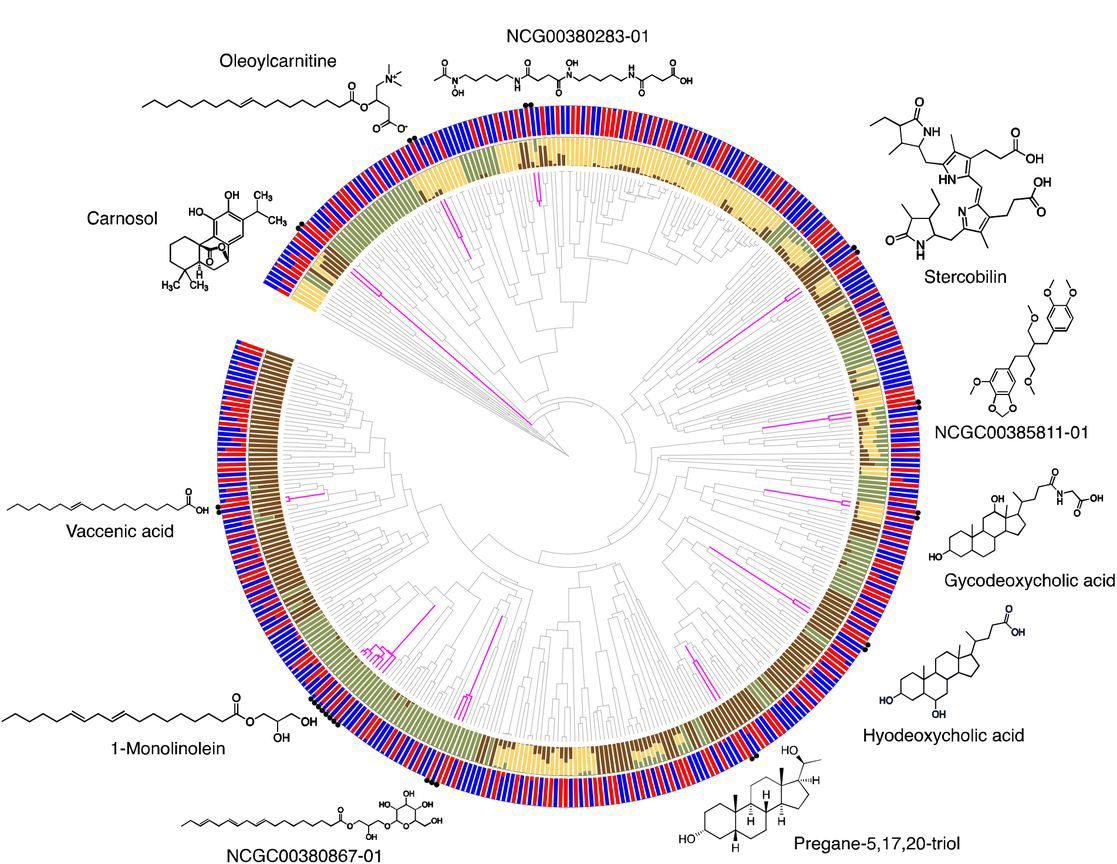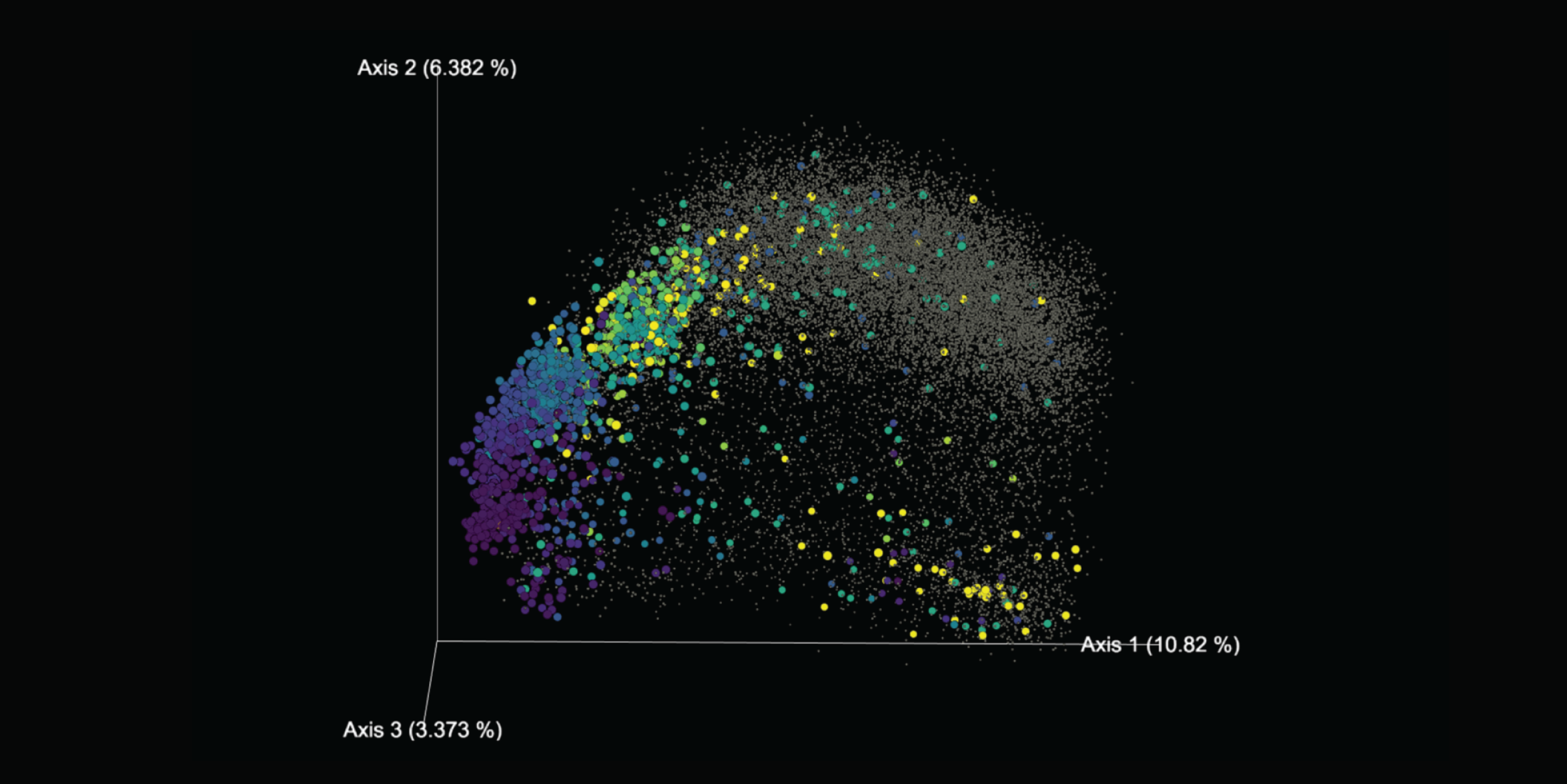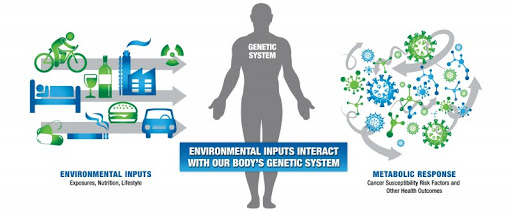Research
The Alzheimer Gut Microbiome Project (AGMP) dives into larger initiatives and established infrastructures:

Mapping out the metabolic failures across the trajectory of Alzheimer’s Disease (AD)

Evaluating the effect of diet and lifestyle on cognition

Providing rich capabilities for enabling research and large data generation in AD.
Why This Matters
Examine
Examine the association between gut microbiome and AD phenotypes.
Define
Define the biochemical axis of communication between the gut microbiome and the brain while identifying metabolites that contribute to AD endophenotypes.
Explore
Explore and identify new approaches for AD prevention and treatment that target the gut microbiome

A chemical tree based on predicted molecular fingerprints representing the structural relationships between compounds. Tripathi, A., et al., Chemically-informed Analyses of Metabolomics Mass Spectrometry Data with Qemistree.
Marotz et al., doi: 10.1128/mSystems.01329-20
What We Do
The Alzheimer Gut Microbiome Project (AGMP) is an initiative to define the role of complex interconnections involving the diet, exposome, lifestyle influences, gut microbiome, and genome on the metabolome to inform about individuality, vulnerability, and unique trajectories of Alzheimer’s disease.
By measuring thousands of chemicals produced by a commensal relationship between the host and the gut microbes, we aim to define how the brain is connected and influenced by peripheral factors that contribute to disease pathogenesis.
Drs. Rima Kaddurah-Daouk (Duke), Rob Knight (UCSD), and Sarkis Mazmanian (Caltech) lead this initiative that involves over 40 scientists from 13 major academic research institutions across the US, Europe, and Australia.

Cores

Administrative
The Administrative Core will provide structure and oversight to enable the AGMP to achieve its goal to define the gut-brain-chemical axis of communication and the role for the gut microbiome in Alzheimer’s Disease pathogenesis.

Omics & Technology
The Omics & Technology Core acts as a portal that interconnects all parts of the project and provides high-quality genomics, metabolomics, and imaging data, that is integrated with clinical and phenotyping information.

Computational & Systems Biology
The Computational & Systems Biology Core will provide access to advanced data analysis algorithms and pipelines for the entire AGMP.
Scientists
Human Samples Banked
Human Samples Analyzed
Participants
Projects

Changes in Gut Microbiome & Metabolome Across AD Stages
Seeks a deeper understanding of the role of the gut microbiome in AD pathogenesis by combining powerful metagenomic and metabolomic tools to define biochemical axes of gut-brain communication.
Influence of Controlled Diets on Microbiome, Metabolome, & Cognition
Links changes in the gut microbiome & metabolome to diet & lifestyle across stages of AD.


Mechanistic Studies on Role of Microbiome in Models for AD
Utilizes preclinical models to measure disease-specific outcomes across stages of Alzheimer’s Disease.
Molecular Atlas for AD: Connecting Exposome, Gut Microbiome, & Metabolome
Links changes in the gut microbiome & metabolome to exposome & lifestyle across stages of AD.

